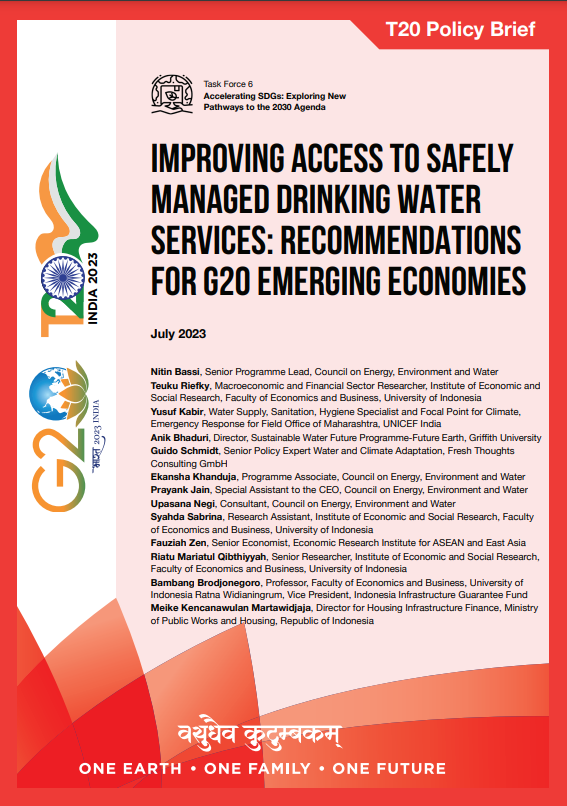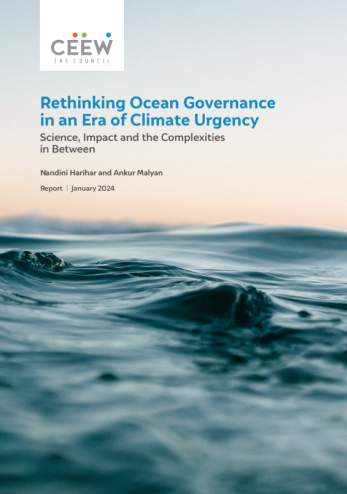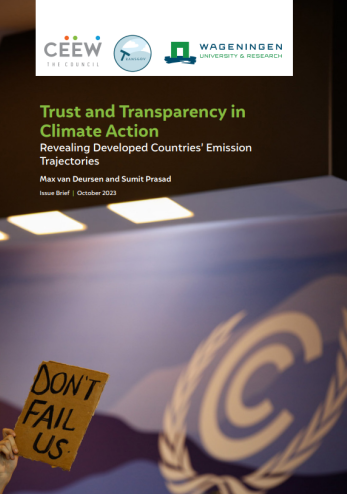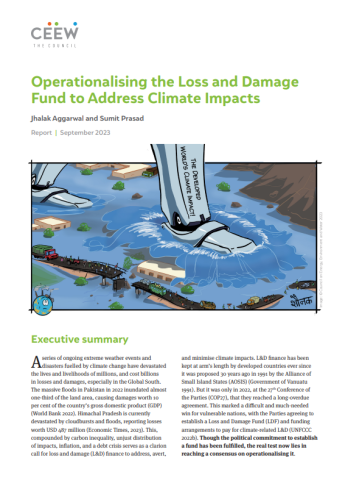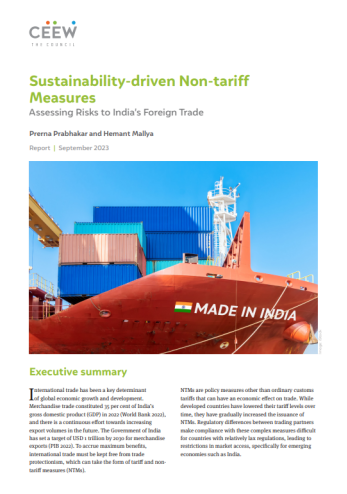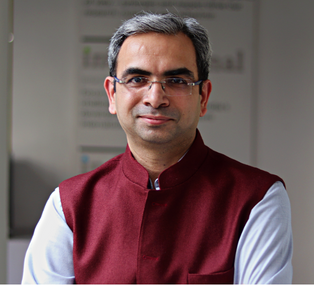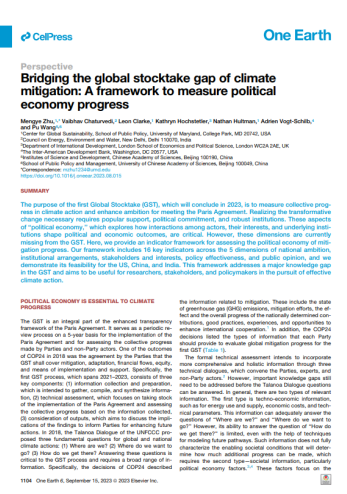Policy Brief
Improving Access to Safely Managed Drinking Water Services
Recommendations for G20 Emerging Economies
Nitin Bassi, Teuku Riefky, Yusuf Kabir, Anik Bhaduri, Guido Schmidt, Ekansha Khanduja, Prayank Jain, Upasana Negi, Syahda Sabrina, Fauziah Zen, Riatu Mariatul Qibthiyyah, Bambang Brodjonegoro, Meike Kencanawulan Martawidjaja
July 2023 | International Cooperation, Sustainable Water
Suggested citation: Bassi, Nitin, Teuku Riefky, Yusuf Kabir, Anik Bhaduri, Guido Schmidt, Ekansha Khanduja, Prayank Jain, et al. 2023. Improving Access to Safely Managed Drinking Water Services: Recommendations for G20 Emerging Economies. India: TF-6: Accelerating SDGs: Exploring New Pathways to the 2030 Agenda, T20 Policy Brief.
Overview
This policy brief, published by T20 India, draws on experience and lessons from G20 and other countries in achieving Target 6.1 of the sustainable development goals (SDGs) — it envisages ways to achieve universal and equitable access to safe and affordable drinking water for all by 2030. These lessons are contextualised in terms of accelerators (governance, data and information, finance, technology, and capacity-building) for the attainment of the same. This brief examines the governance models in domestic water supply management, advances in data and information to enable effective monitoring and evaluation, sustainable financing options for water supply projects, technological innovations, and capacity-building for effective operation and maintenance.
Key Highlights
- As of 2020, 26 percent of the world’s population (about two billion people) did not have access to safely managed drinking water services, i.e., they did not have access to improved sources of drinking water within their premises, available when needed, and free from faecal and priority chemical contamination.
- In the case of the G20 countries, a direct relation is observed in per capita gross domestic product (GDP) (in purchasing power parity (PPP) terms) and the proportion of people with access to safely managed drinking water services.
- Human-caused climate change and contamination of water resources are leading to an adverse impact on water availability.
- All productive uses of water are not accounted for by drinking water supply norms, and often the sources of supply of water are not reliable or the water is not properly handled/ stored.
- Investments in water and sanitation are dominated by the public sector, leaving large scope for private financing untapped in most areas, especially the developing and under-developing economies.
- Data for drawing conclusions on safely managed drinking water services is low, with only 138 countries (representing just 45 per cent of the global population) sharing such estimates. The consistency and comparability of the data reported by these countries is also not promising.
- Skills and resources to ensure safety of water supply schemes, with community-based local institutions that are managing operations and maintenance of such schemes, remain low.
Recommendations
- Institute adaptive and flexible governance models for sustainable water supply to respond to the challenges of climate change. An independent agency to allocate water across various competing uses in every river basin would be a step in this direction, as would be setting up legal provisions for access to safely managed drinking water.
- Enable data and information collection and sharing for effective monitoring and evaluation. Build standardised and holistic list of indicators with adequate frequency of reporting to assess the progress on safely managed drinking water services, as has been brought out by India’s Jal Jeevan Mission.
- Increase sustainable financing flow for water supply projects. Provisions which can facilitate accessing private financing available domestically and internationally must be made. For this it is crucial to improve the investment efficiency and commercial viability of water projects.
- Promote and deploy technological innovations for water supply. Smart-water meters with real time data technology and SCADA (supervisory control and data acquisition) based monitoring systems enable the water supply utilities and the local community to better track risks related to the water sources and supply. Experiences from Ghana, Nigeria, Kenya, and other African and Asian countries can guide the way.
- Building capacity for effective operation and maintenance to enable a change from water sufficient to water efficient climate resilient communities. The Jal Jeevan Mission of India, the National Water Quality Evaluation Program of Brazil, and CLARA (capacity-linked water supply and sanitation improvement for Africa’s peri urban and rural areas) in Africa present a strong case for the same.
"The world is taking steps to move towards SDG 6.1, but the current pace of progress will have to be quadrupled to provide universal coverage of drinking water. It is important for G20 countries and the world to learn and contextualize from each other’s experiences in providing drinking water security to its people."




